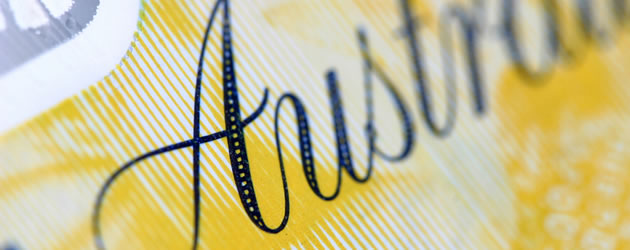EUR/AUD Exchange Rate Up Despite Poor German Industrial Figures
The Euro Australian Dollar (EUR/AUD) exchange rate is up, and is currently trading at AUD$1.5775, despite today’s release of Germany’s industrial figures for October showing a decrease.
However the ‘Aussie’ was pummelled yesterday after US-China trade tensions reignited with the arrest and possible extradition to the US of Chinese telecoms giant Huawei’s Chief Financial Officer, Wanzhou Meng.
This arrived as Australia’s trade balance for October dropped, further weakening the ‘Aussie’ against the Euro (EUR).
The Euro meanwhile was dented by yesterday’s release of Germany’s factory orders figures which showed a decrease on last year’s figures.
Many EUR investors have also remained cautious as the EU awaits Italian Prime Minister Giuseppe Conte’s promised revision of Italy’s budget deficit, with fears that the European Commission will reject it and press on with its disciplinary procedures.
EUR/AUD Exchange Rate Rises as Italy Announces Budget Revision Due by Wednesday
The Euro (EUR) was weakened by today’s release of Germany’s industrial production figures for October, which showed a decrease at -0.5% – down 0.7% increase on September’s figures.
However, EUR was also hit by today’s release of Q3 GDP figures which showed an annualise decrease, dampening market sentiment as the Eurozone shows signs of slowing down.
However, the Euro (EUR) has found some support from recent Brexit developments, particularly with the European Court of Justice announcing that the UK could effectively reverse Brexit and return to the EU fold if Article 50 is unilaterally revoked.
EUR found some support from the report that the Italian government will release its revised budget to the EU on Wednesday, bolstering market confidence now that at least a date is set.
Australian Dollar Euro (AUD/EUR) Exchange Rate Down after Yesterday’s Trade Tension Pummelling
The ‘Aussie’ remains weak after yesterday’s pummelling from the escalation of US-China trade tensions, with Joseph Capurso, a Senior Currency Strategist at the Commonwealth Bank, commenting:
‘Canada’s arrest of Huawei’s chief financial officer following a US extradition request reinforces our view that a speedy resolution to US China trade tensions is unlikely in the near term.’
Yesterday also saw Australia’s AiG’s performance of construction index for November take a bearish turn.
AUD has been hindered by increasing concerns over the Reserve Bank of Australia’s possible rate cuts, with the RBA’s Deputy Governor Guy Debelle commenting yesterday:
‘The Reserve Bank has repeatedly said that our expectation is that the next move in monetary policy is more likely up than down, though it is some way off.’
With increasing concerns over geopolitical tensions dampening AUD, and Australia’s housing crisis looming large in the headlines, investors are again seeking out safe-haven currencies.
EUR/AUD Outlook: Italy’s Budget and Globalpolitical Tensions Remain in Focus
The EUR/AUD exchange rate is likely to be driven by political forces this week, with Italy’s budget remaining in focus for Euro (EUR) investors, and continuing trade tensions between the US and China directly dampening market sentiment in the ‘Aussie’.
Monday will see the release of October’s Australian home loans figures, with any signs of an increase likely strengthening AUD.
Tuesday, meanwhile, will see the release of Australia’s Q3 house price index, with investors paying close attention to any signs of deterioration.
Meanwhile EUR investors will be awaiting the outcome of the ECJ’s ruling on Article 50 which could swing the Commons vote on Tuesday, bolstering confidence that the UK may stay in the EU.
Wednesday, however, has been penned as the release day for Italy’s revised budget, with any signs of a compromise being met between Italy and the EC being paid particular attention by EUR investors.



